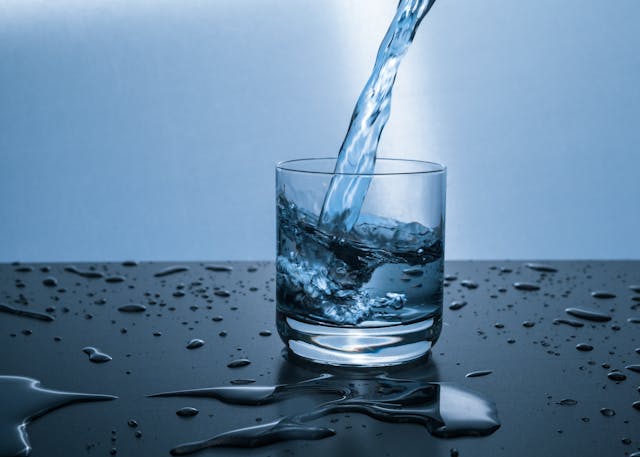Clean drinking water is a fundamental human right, but there’s still work to do to ensure universal access. The United Nations estimates that around 2.2 billion people (about 27% of the world’s population) currently lack access to safely managed water, meaning that it’s accessible on site, always available when needed, and free from contamination.
People lack clean water for a variety of reasons, but often, it’s because of a lack of infrastructure to collect, clean, and transport it. Water infrastructure is complex and requires resources and investments that aren’t always available in lower-income countries and communities, especially as populations grow and governments struggle to keep up basic services. Droughts, heatwaves, rising seas, dwindling snowpacks, and extreme weather driven by climate change also threaten precious freshwater sources around the world. Conflict can decimate clean water infrastructure as well.
Poverty and clean water access are linked. Ghana’s struggles with water illustrate this fundamental connection.
The Water Situation in Ghana
According to United Nations Children’s Fund (UNICEF), 11% of the people in Ghana lack access to potable water. These people are forced to rely on untreated surface water and water from other unsafe sources, despite the fact that these sources are often also used for bathing, cleaning, and watering animals. Another 10% percent of Ghanaians must walk at least 30 minutes to access improved water sources like a pump.
Think about that for a second. Most of us in the US only have to turn on a tap in the kitchen or bathroom, and fresh, drinkable water rushes out. Imagine having to walk through heat, cold, rain, or wind to find clean water, then lug heavy buckets back…and then repeat the process every time your family needs more water.
There is a strong correlation between poverty and lack of access to clean water in Ghana, with the country’s poorest people being 20 times more likely to have to walk 30 minutes to access potable water. It’s also a regional issue, since families in the Northern Region are 16 times more likely to spend over 30 minutes collecting water, when compared to households in Accra, the capital city. Moreover, UNICEF estimates that 93% of households in Ghana do not treat their drinking water at all, and only 4% treat it adequately. As such, 76% of the population of Ghana is at risk of consuming fecal matter in their water, and waterborne illnesses and parasitic infections such as bilharzia and guinea worm are common in communities without potable water.
Further contributing to the situation is the fact that many of the most impoverished communities that lack access to clean water also lack medical clinics and other services that are essential for treating waterborne infections. The cumulative effect of these factors is a higher risk of chronic illness, wasting, debilitating dehydration, undiagnosed parasitic infections, and even death.
Water is also a gender equity issue in Ghana and elsewhere. Women and children are usually tasked with sourcing water for their families and communities, which can take up hours every day and rob them of the opportunity to attend school or earn an income. This onerous task also makes it more difficult for these women, children, and their families to break free from the cycle of poverty. In this way, water, poverty, and gender equity are intertwined.
IRUSA Is United for Clean Water in Ghana
Islamic Relief USA’s (IRUSA) United for Clean Water in Ghana campaign is providing sustainable clean water sources to communities that lack access to both potable water and the medical infrastructure necessary to treat waterborne illnesses. This program includes an initiative to install 44 wells throughout Ghana this year, with funds and resources provided by IRUSA donors and partnerships.
One of the communities that was selected for well installation was Djani, a rural community in the Eastern Region where people were forced to drink, cook, and bathe with water drawn from a stream where their animals also drink. The water was making them sick, but they have no medical clinic nearby. Another community that received a well was Nyekwasiakura, a small village a few hours outside Accra.
IRUSA’s well-drilling process follows a multi-stage plan involving need and site assessment, design, and bore hole drilling. Then, workers install electrical and plumping infrastructure to power the well. The final stage is the opening of the well to community access.
These life-saving wells are in the process of being designed and installed, but more funding is required to further the work of providing clean water to those in need. If you’re interested in supporting IRUSA’s United for Clean Water in Ghana campaign, visit the organization’s website at https://irusa.org/water/, where you can learn more about the program and provide donations through a simple, easy-to-use site.
